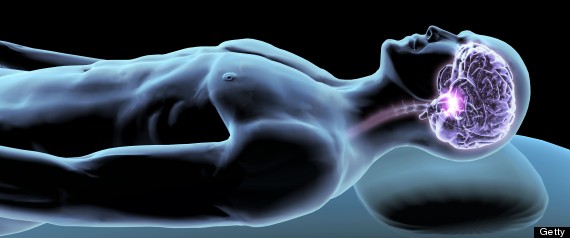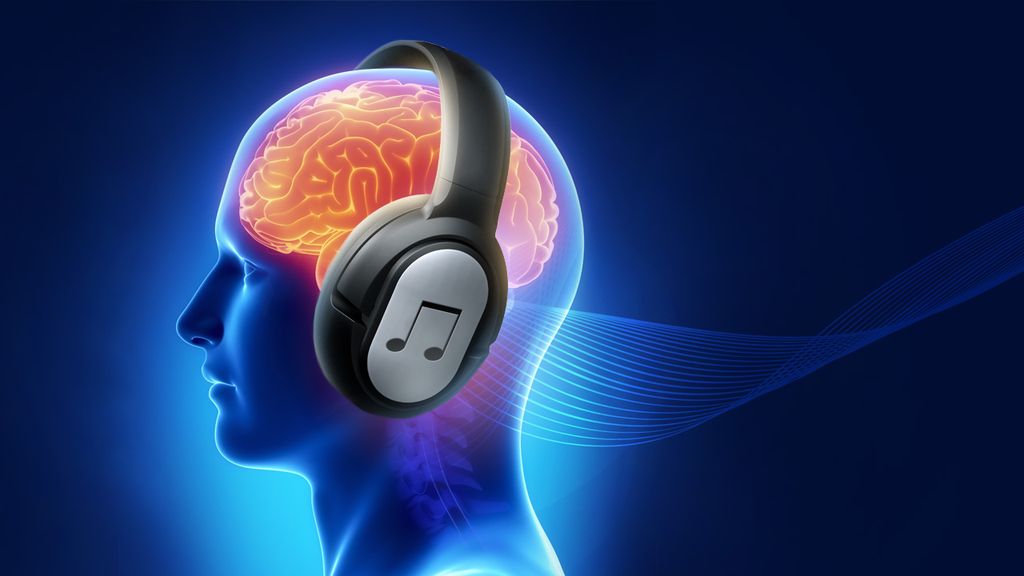Neuroscience and the Iranian Nuclear Negotiations: An exercise in headline-grabbing
Recently, The Atlantic posted an article relating the growing field of neuroscience to international negotiations, specifically those surrounding the Iranian nuclear negotiations. Co-written by a neuroscientist and an expert in international relations, the article prompted a rather stern and testy response from Christian Jarrett, a science writer for Wired, yet he brings up some excellent points. Before continuing, I urge you to read The Atlantic‘s article here.
Although it may be well-intentioned, it appears that The Atlantic ‘s article is little more than an attempt to grab headlines and call more attention to the piece, riding the hype trains of two popular subjects. While it appears that applying concepts from neuroscience to news and international negotiations might be something that can contribute to our understanding, realistically it only serves to dilute the field. At best, it is a misguided attempt at connections between fields. At worst, it is another example of today’s journalism: lazy and prone to clickbait.
Visual Deprivation Could Improve Hearing in Adults
 Most people are familiar with the idea that people who are blind have better hearing than those with normal vision. It was formerly thought that this compensation for lack of vision could only develop in the brains of the very young. However, new research conducted at the University of Maryland and Johns Hopkins University suggests that the brain may be more flexible than previously believed.
Most people are familiar with the idea that people who are blind have better hearing than those with normal vision. It was formerly thought that this compensation for lack of vision could only develop in the brains of the very young. However, new research conducted at the University of Maryland and Johns Hopkins University suggests that the brain may be more flexible than previously believed.
In the study, researchers kept one group of healthy mice in total darkness for a week, and exposed the other group to natural light for a week. Then the team used electrodes to measure activity in neurons in the mice’s primary auditory cortex. This is the part of the brain that processes how loud a sound is and its source. By analyzing this data, researchers found that the mice who were exposed to a week of darkness had much better hearing than the control mice.
This suggests that the circuits that process sensory information can be re-wired in the brains of adult mice, even after the early critical period for hearing. These findings seem to contradict the idea that once the critical period for hearing is past, the auditory system doesn't respond to changes in an individual's soundscape.
Pregnant Women Fit Between Everyday Obstacles
![]()
Pregnancy is...? This sentence can end in a multitude of ways depending on whose answering the question. If I ask the 'teen-mom-too-good-to-be-true-seventeen year-old-boyfriend' who isn't worried about nothing, then he'd probably say...well I would've asked but he just stormed off in his 92' Bronco. You know, the one with the flames on the side? If I ask the nervous husband who has been day dreaming of becoming that perfect family man ever since he got into the relationship, then he'd probably say: If it's a girl, I will be the dragon that protects my princess' castle. If I ask the soon-to-be-BIG-brother whose busy doing doughnuts in his fisher price corvette yelling "look mom, no hands," he'd probably say: This doesn't change the cookie rations, does it? And finally if I ask the pregnant mother-to-be if she thinks she's gained weight what she's praying for, she'd probably say: Just not your father's personality, PLEASE, not your father's personality.
Pregnancy is engaging. It brings together families, can tear relationships apart, and creates changes in the daily routine. Most notable is women's change in body size. Bodily size and the awareness of that size can create multiple obstacles. Typically, pregnant women are thought to be inhibited in their ability to adapt to these obstacles, however, pregnant women are just as capable as non-pregnant individuals. Today, we'll discuss their ability to asses depth perception and whether or not they can fit through openings such as doorways. Thanks to perceptual-motor-recalibration, pregnant women are just as good at adjusting their spatial awareness of their environment to match their constantly changing bodies.
More
The Polygenetic Basis of Mutations in the Development of Schizophrenia

Schizophrenia is a mental disorder often presented in patients by abnormal thought processes, impaired emotional responses, and negative symptoms. As a chronic disorder that affects ~1% of all people, schizophrenia can be have debilitating effects on patients, especially on their social lives. Due to the lack of knowledge on its pathophysiology and also the heterogeneity of the symptoms, it has been increasingly important to understand the genetics of schizophrenia.
Due to the marked reduction in fecundity seen in schizophrenic patients, the high heritability of the disorder pointed to the possibility that genetic alleles that were risk factors might occur as de novo mutations. Previous exome sequencing studies showed no promising results, but the inconclusive results were likely due to small sample size and a narrow focus on target genes. Two recent studies, the largest of their kind, gathered data from nearly 7000 people (nearly 3500 patients) from Sweden and Bulgaria, and showed that genetic effects on schizophrenia seemed to be very complex. Specifically, both papers published in Nature reflected on the implication of genetic mutations in clusters of specific proteins that governed signaling networks dealing with learning and memory. The studies identified the presence of de novo mutations, often nonsense mutations, notably in genes related to the PSD (post-synaptic density of dendrites), the calcium channels, the postsynaptic ARC complex, and the NMDA receptors.
More
The Power of Meditation
When the word meditation comes up, people usually think of Monks or Buddhists first. However, there is a reason they meditate so often; meditation does wonders for your brain, and here is how.

There are two main types of meditation: 1) Focused-attention meditation or 'Mindful meditation' and 2) Open-monitoring meditation. In Mindful meditation, you focus on one specific thing ranging from your breathing, a specific sensation in your body, or a particular object in front of you.The key point is to focus on one thing without consideration to other thoughts or events happening around you. When any distractions occur, you must be quick to recognize it and turn your focus back to your focal point. Open-monitoring meditation is where you pay attention to all the things happening around you but you do not react to them.
More
Are Men More Forgetful Than Women?
If you have ever noticed that men tend to forget things quite often, especially compared to women, you are not alone. A research team led by Professor Jostein Holmen in Norway conducted a large, longitudinal population health study called Hunt3 to reach the conclusion that men are more forgetful than women, regardless of their age. This is one of the largest health studies ever performed, with answers from over 48,000 people leading to their conclusions.
The participants were asked at the beginning of the study if they had problems remembering things, if they had problems remembering dates and names, if they had a memory of what they did one year ago, and if they could remember details about specific conversations.
Update on Concussions in Athletics: Traumatic Brain Injury in Baseball?!
What’s the latest on all that news about concussions in the NFL? It’s been a while since this story initially made its way into headlines and penetrated news and popular culture around the country. The neuroscience world continues to bustle over the story and research on the disease now known as chronic traumatic encephalopathy, or CTE, remains a priority right here at the Boston University School of Medicine in the Center for the Study of Traumatic Encephalopathy (CSTE) directed by Dr. Robert Cantu, Dr. Anne McKee, and Mr. Chris Nowinski. Especially with the release of the Frontline documentary released last October titled “League of Denial” (see below), aimed at exploring the possibility that the NFL has mishandled the concussion issue for a number of years, have more and more families in the United States and all over the world begun to understand the potential repercussions of traumatic head injury.

From: http://news.discovery.com/tech/brain-scan-detects-effects-concussion-120611.htm
Why do we need sleep?

We know from everyday life that, at some point, we need to sleep. In fact, extended sleep deprivation can lead to death. Despite the amount of sleep research that has been conducted, none have been able to clearly reason out the essential function of sleep. However, recently, a promising study by Dr. Nedergaard showed that sleep functions in clearing neurotoxic waste from the brain of mice. In effect, without sleep, these toxins would build up and cause problems for the body.
Specifically, the study looked at what is known as the glymphatic system. Because our central nervous system lacks a lymphatic system which is in our peripheral system, the glymphatic clearance pathway is the primary way in which our brain can "clear" the cerebrospinal fluid (CSF) and interstital fluid (ISF) of the brain parenchyma. This clearance includes functions of getting rid of wastes, soluble proteins, and even controlling the volume of fluid. Interestingly, the Nedergaard study showed that this clearance system works faster when mice were asleep--in other words, the exchange rates of CSF and ISF increased during sleep. In addition, they were able to show that surrounding cells in the brain would shrink in size to allow more efficient clearance.
Neuroplasticity of Music
As we grow and discover new artists, we refine the compilation of music in our brains. But do we stop developing taste in music at a certain age? Many researchers believe that by the age of 14 musical preferences are completely developed. Does this mean that your taste in music is set in stone for the rest of your life? Not exactly.
In an article from the New York Times, David Hajdu points out that major music stars such as John Lennon, Paul Simon, and Aretha Franklin, and many other successful artists all turned 14 during the mid-50s, when rock ‘n’ roll was first becoming a major genre. Altough it may just be a strange coincidence, Hajdu believes that this is what influenced them to pursue music as a career “Fourteen is a sort of magic age for the development of musical tastes,” says Daniel J. Levitin, a professor of psychology and the director of the Laboratory for Music Perception, Cognition and Expertise at McGill University. “Pubertal growth hormones make everything we’re experiencing, including music, seem very important. We’re just reaching a point in our cognitive development when we’re developing our own tastes. And musical tastes become a badge of identity.”
A Different Way to Exercise
Does the gym seem too far away? Do you feel like you don’t have time to exercise? There may be some good news for couch potatoes like ourselves. Studies are showing that watching a sport causes some of the same physiological effects as actually working out . While watching others exercise, heart rate, respiration, skin blood flow, and sweat release all increase as if you were exercising.
Researchers at the University of Western Sydney inserted fine needles into an outer nerve of volunteers who were shown a static image followed by a video of a jogger for 22 minutes. With these needles, the scientists were able to record electrical signals within nerve fibers that innervate blood vessels. These recordings provided measures of the body’s physiological stress response, particularly muscle sympathetic nerve activity.
The study showed that sympathetic nerve activity increased when volunteers watched the jogger. In comparison, observing the static image caused change in activity. The sympathetic nervous system innervates the heart, sweat glands, and blood vessels, and its activity increases during exercise. This study indicates that its activity also increases while watching another person exercise, indicating that there may be some benefit.


